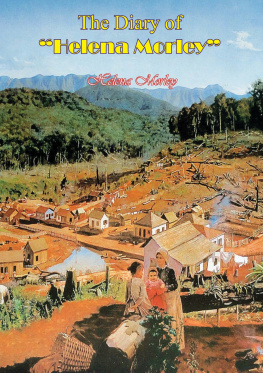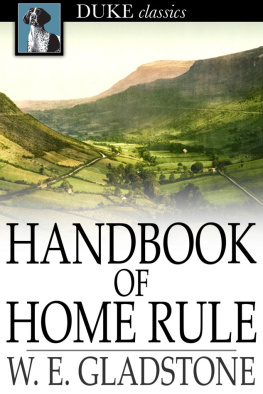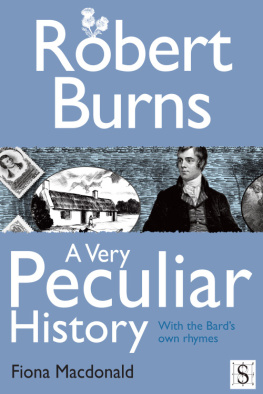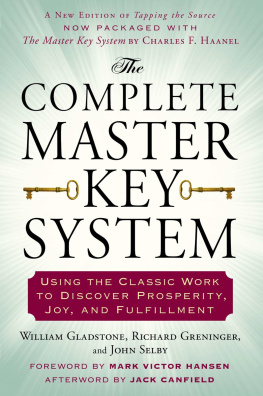Chapter I. Opening Days Of The New Parliament. (1880)
I
On May 20, after eight-and-forty years of strenuous public life, Mr. Gladstone met his twelfth parliament, and the second in which he had been chief minister of the crown. At 4.15, he records, I went down to the House with Herbert. There was a great and fervent crowd in Palace Yard, and much feeling in the House. It almost overpowered me, as I thought by what deep and hidden agencies I have been brought back into the midst of the vortex of political action and contention. It has not been in my power during these last six months to have made notes, as I would have wished, of my own thoughts and observations from time to time; of the new access of strength which in some important respects has been administered to me in my old age; and of the remarkable manner in which Holy Scripture has been applied to me for admonition and for comfort. Looking calmly on this course of experience, I do believe that the Almighty has employed me for His purposes in a manner larger or more special than before, and has strengthened me and led me on accordingly, though I must not forget the [pg 002] admirable saying of Hooker, that even ministers of good things are like torches, a light to others, waste and destruction to themselves.
One who approached his task in such a spirit as this was at least impregnable to ordinary mortifications, and it was well; for before many days were over it became perceptible that the new parliament and the new majority would be no docile instrument of ministerial will. An acute chill followed the discovery that there was to be no recall of Frere or Layard. Very early in its history Speaker Brand, surveying his flock from the august altitude of the Chair with an acute, experienced, and friendly eye, made up his mind that the liberal party were not only strong, but determined to have their own way in spite of Mr. Gladstone. He has a difficult team to drive. Two men of striking character on the benches opposite quickly became formidable. Lord Randolph Churchill headed a little group of four tories, and Mr. Parnell a resolute band of five and thirty Irishmen, with momentous results both for ministers and for the House of Commons.
No more capable set of ruling men were ever got together than the cabinet of 1880; no men who better represented the leading elements in the country, in all their variety and strength. The great possessors of land were there, and the heirs of long governing tradition were there; the industrious and the sedate of the middle classes found their men seated at the council board, by the side of others whose keen-sighted ambition sought sources of power in the ranks of manual toil; the church saw one of the most ardent of her sons upon the woolsack, and the most illustrious of them in the highest place of all; the people of the chapel beheld with complacency the rising man of the future in one who publicly boasted an unbroken line of nonconformist descent. They were all men well trained in the habits of business, of large affairs, and in experience of English life; they were all in spite of difference of shade genuinely liberal; and they all professed a devoted loyalty to their chief. The incident of the resolutions on the eastern question
The Cabinet A Coalition
memories, and men who in those days had assured themselves that there was no return from Elba, became faithful marshals of the conquering hero. Mediocrity in a long-lived cabinet in the earlier part of the century was the object of Disraeli's keenest mockery. Still a slight ballast of mediocrity in a government steadies the ship and makes for unitya truth, by the way, that Mr. Disraeli himself, in forming governments, sometimes conspicuously put in practice.
In fact Mr. Gladstone found that the ministry of which he stood at the head was a coalition, and what was more, a coalition of that vexatious kind, where those who happened not to agree sometimes seemed to be almost as well pleased with contention as with harmony. The two sections were not always divided by differences of class or station, for some of the peers in the cabinet often showed as bold a liberalism as any of the commoners. This notwithstanding, it happened on more than one critical occasion, that all the peers plus Lord Hartington were on one side, and all the commoners on the other. Lord Hartington was in many respects the lineal successor of Palmerston in his coolness on parliamentary reform, in his inclination to stand in the old ways, in his extreme suspicion of what savoured of sentiment or idealism or high-flown profession. But he was a Palmerston who respected Mr. Gladstone, and desired to work faithfully under him, instead of being a Palmerston who always intended to keep the upper hand of him. Confronting Lord Hartington was Mr. Chamberlain, eager, intrepid, self-reliant, alert, daring, with notions about property, taxation, land, schools, popular rights, that he expressed with a plainness and pungency of speech that had never been heard from a privy councillor and cabinet minister before, that exasperated opponents, startled the whigs, and brought him hosts of adherents among radicals out of doors. It was at a very early stage in the existence of the government, that this important man said to an ally in the cabinet, I don't see how we are to get on, if Mr. Gladstone goes. And here was the key to many leading incidents, both during the life of this administration and for the eventful year in Mr. Gladstone's career that followed its demise.
[pg 004]
The Duke of Argyll, who resigned very early, wrote to Mr. Gladstone after the government was overthrown (Dec. 18, 1885), urging him in effect to side definitely with the whigs against the radicals:
From the moment our government was fairly under way, I saw and felt that speeches outside were allowed to affect opinion, and politically to commit the cabinet in a direction which was not determined by you deliberately, or by the government as a whole, but by the audacity ... of our new associates. Month by month I became more and more uncomfortable, feeling that there was no paramount directionnothing but slip and slide , what the Scotch call slithering. The outside world, knowing your great gifts and powers, assume that you are dictator in your own cabinet. And in one sense you are so, that is to say, that when you choose to put your foot down, others will give way. But your amiability to colleagues, your even extreme gentleness towards them, whilst it has always endeared you to them personally, has enabled men playing their own game ... to take out of your hands the formation of opinion.
On a connected aspect of the same thing, Mr. Gladstone wrote to Lord Rosebery (Sept. 16, 1880):
... All this is too long to bore people withand yet it is not so long, nor so interesting, as one at least of the subjects which we just touched in conversation at Mentmore; the future of politics, and the food they offer to the mind. What is outside parliament seems to me to be fast mounting, nay to have already mounted, to an importance much exceeding what is inside. Parliament deals with laws, and branches of the social tree, not with the root. I always admired Mrs. Grote's saying that politics and theology were the only two really great subjects; it was wonderful considering the atmosphere in which she had lived. I do not doubt which of the two she would have put in the first place; and to theology I have no doubt she would have given a wide sense, as including everything that touches the relation between the seen and the unseen.








